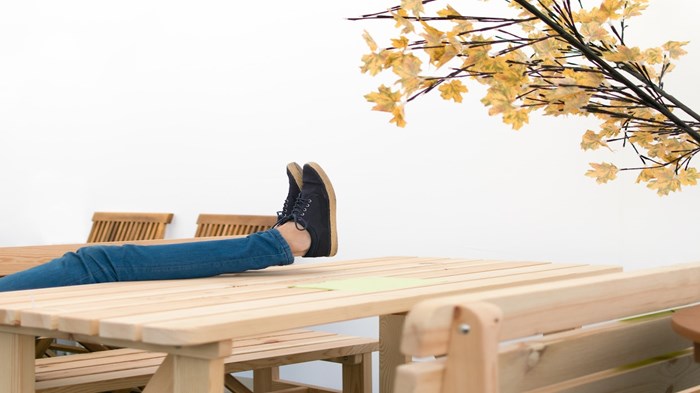True Freedom

True Freedom, by Mike Glenn
Most New Testament scholars agree Luke is one of the best writers in our biblical canon. His use of imagery and language have left us with stories we will never forget. The story of Jesus’ birth, the pathos of Simeon and Anna, and the panic of Mary and Joseph as they searched for Jesus in the Temple are rich in their ability to connect to the reader’s humanity. Most of the stories that have etched themselves in our memory – the good Samaritan and the prodigal son – are in Luke.
Which makes the ending of Acts one of the most curious oddities of New Testament scholarship. According to Luke, Paul was in Rome under house arrest and preaching the gospel “unhinderedly.” It’s the last word in his gospel. This is a very clumsy way to end the story of Acts. So clumsy, in fact, that many scholars believed it was intentional. Often, great writers will intentionally violate the rules of grammar in order to bring attention to a particular point of emphasis.
My New Testament professor, Frank Stagg, titled his commentary on Acts, “The Book of Acts: The Early Struggle for an Unhindered Gospel.” According to Dr. Stagg, that one word, “unhinderedly”, is the key to understanding Acts. The entire gospel, Dr. Stagg would teach, is about a gospel breaking through every obstacle that would hinder it. The Christ-centered life, he would say, is an unhindered life.
I’ve known a few people who lived unhindered lives. In fact, some of the most successful people I know are not only unhindered in how they live, but they are extremely generous with their attention, their time, and their resources. They have become free from false obligations and expectations, and an unhealthy concern about what other people think. They manage their resources so they can do what they want to do, when they want to do it, the way they want to do it.
As a result, most of these people are extremely generous. Now, understand, I didn’t say rich. I said successful. Sometimes these individuals are very prosperous. They’ve started businesses, achieved remarkable success, and created some amazing things – from music to gadgets. Others have decided to live very simply. Did I say simply? How about minimalistic. One of my friends lives in a very small house on his family’s land. He doesn’t have a television. He doesn’t have internet. He reads. He plays music. He and his wife tend his garden and care for their animals.
I think he’s nuts. How can you go through life and never watch the World Series, college football and the Super Bowl? According to my friend, you can live very well. In fact, when the rest of the world shut down for the COVID pandemic, he hardly knew.
When you stop by his house, he’ll always have vegetables to give to you. Maybe the hens had a good day, and you’ll walk away with a basket of eggs. He’s never in a hurry, and he’s always got time to tell a good story. He’s very generous in his hospitality.
Another one of my friends is one of the more successful business people in Tennessee. He’s always quick to return my call. He can always find time for a cup of coffee or an early lunch, and his counsel has been invaluable. He’s very generous.
Here’s what I’m learning. The freest people I know are also the most generous. For me, learning to be generous is the highest spiritual reality because it comes only when we’ve dealt with so many of the other spiritual disciplines. You can’t be generous if you’re holding grudges and living with unforgiveness. You can’t be generous if you’re materialistic or greedy. You can’t be generous if your identity isn’t grounded firmly in Christ. If you think your self-worth is proven by what you possess, by definition, you can’t be generous.
This is what I thought about when I begin to hear all of the discussions about freedom and liberty that usually happen around the Fourth of July. Yes, we do live in a great country. Yes, we are afforded a great deal of freedom as citizens of the United States.
Yet, you and I know most of us and most of the people we know aren’t free at all. They are held captive by their addictions, their desires, and their needs. They are driven by cravings that drive them from bad decision to bad decision. As a result, most of us aren’t generous because most of us aren’t free.
This year, as we celebrate all that we have been given because we live in the United States, let’s spend some time thinking about what we can give. Can we volunteer in a local non-profit or tutor after school? Can we volunteer at our church or local senior adult center? Can you give money to a local food bank?
What can you do to declare your independence that would hinder you from living a free life in Christ? What can you get free of this year?
As you celebrate all you’ve been given, what will you celebrate you can give?
After all, the most generous people I know are also the most free. Are you one of them?
Jesus Creed is a part of CT's
Blog Forum. Support the work of CT.
Subscribe and get one year free.
The views of the blogger do not necessarily reflect those of Christianity Today.


















